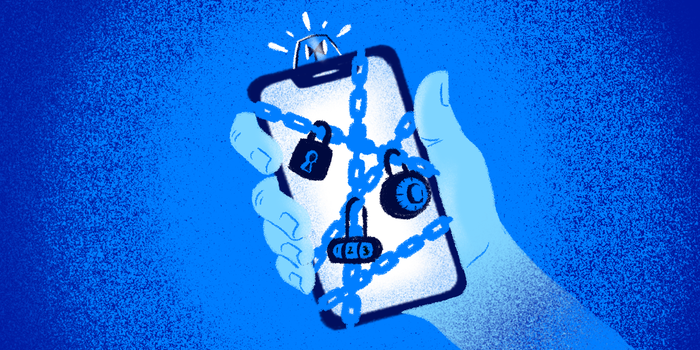What to Do When Password Recovery Attacks Stall

I've Been Running a Password Recovery Attack For a While Now, And The Attack Appears Stalled. What Should I Do?
Password recovery can be a time-consuming and challenging process, especially when dealing with strong encryption algorithms and lengthy passphrases. If your attack appears to have stalled, it's essential not to lose hope and explore alternative strategies to increase your chances of success.
One of the first steps you should take is to review your approach and ensure that you've correctly configured your tools and settings. Double-check your wordlists, character sets, and any other parameters you've specified. Even a minor oversight or typo can significantly impact the effectiveness of your attack.
Additionally, consider the hardware resources you're utilizing. Password cracking can be computationally intensive, and if you're running your attack on an underpowered system, it may take an excessively long time to make meaningful progress. Upgrading your hardware, such as investing in a more powerful graphics processing unit (GPU) or utilizing a distributed computing setup, can significantly accelerate the cracking process.
Why Is The Password Difficult to Recover?
There are several reasons why a particular password might be challenging to recover, even with sophisticated tools and techniques at your disposal. One of the primary factors is the strength of the encryption algorithm used to protect the password. Modern algorithms like AES, Blowfish, and SHA-256 are designed to be highly resistant to brute-force attacks, making it extremely difficult to crack passwords by sheer computational power alone.
Another factor contributing to the difficulty is the length and complexity of the password itself. Longer passwords with a diverse mix of characters (uppercase, lowercase, numbers, and symbols) exponentially increase the number of possible combinations, making it harder for an attacker to guess the correct sequence.
Furthermore, if the password has been salted or hashed multiple times, it becomes even more challenging to recover. Salting adds random data to the password before hashing, preventing precomputed attacks and making each instance unique. Multiple rounds of hashing further increase the computational complexity, slowing down the cracking process.
What Steps Can I Take To Increase My Chances of Recovering The Password?
If your password recovery attack has stalled, there are several strategies you can employ to increase your chances of success:
- Expand your wordlists: Wordlists are collections of commonly used words, phrases, and character combinations that password crackers use as a starting point for their attacks. By expanding your wordlists to include more diverse and relevant entries, you can potentially uncover the target password. Consider incorporating personal information about the target, such as names, dates, and interests, as well as industry-specific jargon or terminology.
- Utilize rule-based attacks: Rule-based attacks involve applying predefined rules or patterns to your wordlists, generating permutations and variations of the original entries. These rules can include techniques like character substitution (replacing "a" with "@"), appending or prepending numbers or symbols, and combining multiple words. By employing rule-based attacks, you can significantly expand the number of potential password candidates without relying solely on brute-force methods.
- Leverage dictionary attacks: Dictionary attacks involve using pre-computed lists of commonly used passwords, which can be particularly effective against weak or predictable passwords. While these attacks may not be successful against complex, randomly generated passwords, they can be a valuable tool in your arsenal, especially when combined with other techniques.
- Implement hybrid attacks: Hybrid attacks combine multiple attack vectors, such as dictionary attacks with rules or brute-force methods. By leveraging the strengths of different approaches, you can increase your chances of success, particularly against passwords that fall somewhere between simple and highly complex.
- Utilize distributed computing: If you have access to multiple machines or a computing cluster, consider distributing your password recovery efforts across these resources. Distributed computing can significantly increase the overall computational power available for your attack, potentially accelerating the cracking process.
- Explore alternative attack vectors: In some cases, it may be more effective to explore alternative attack vectors beyond traditional password cracking. For example, if the target system or application has known vulnerabilities, you could attempt to exploit these weaknesses to gain unauthorized access or bypass the password requirement altogether.
Can I Speed Up The Recovery Process?
While there's no guaranteed way to instantly recover a password, there are several strategies you can employ to potentially speed up the recovery process:
- Optimize your hardware: Investing in more powerful hardware, such as high-end GPUs or dedicated password cracking rigs, can significantly accelerate the cracking process. These specialized systems are designed to handle the computational demands of password recovery attacks more efficiently.
- Utilize specialized tools: There are various specialized tools and software packages tailored for password recovery tasks. These tools often incorporate advanced techniques, optimized algorithms, and support for distributed computing, which can greatly enhance the speed and effectiveness of your attacks.
- Implement caching and precomputation: Caching and precomputation techniques can help reduce the computational overhead of your attacks. By storing and reusing previously computed hashes or password candidates, you can avoid redundant calculations and focus your resources on unexplored portions of the keyspace.
- Leverage cloud computing resources: Cloud computing platforms offer access to vast computational resources on-demand. By leveraging these scalable resources, you can temporarily allocate significant computing power to your password recovery efforts, potentially accelerating the process.
- Prioritize your efforts: If you're working with limited resources, prioritizing your efforts can be crucial. Focus on the most promising attack vectors and target systems first, rather than spreading your resources too thinly across multiple fronts.
- Collaborate with others: In some cases, collaborating with others in the password recovery community can be beneficial. By pooling resources, sharing wordlists, and exchanging techniques, you may be able to leverage collective knowledge and computational power to speed up the recovery process.
Conclusion
Password recovery attacks can be challenging and time-consuming, especially when dealing with strong encryption and complex passwords. However, by employing a combination of strategies, such as expanding wordlists, utilizing rule-based and hybrid attacks, leveraging specialized tools and hardware, and exploring alternative attack vectors, you can increase your chances of success.
It's essential to remain patient and persistent, as even the most formidable passwords can be cracked given enough time and resources. Remember to prioritize your efforts, optimize your hardware and software, and consider collaborating with others in the password recovery community to maximize your chances of recovering the target password.





Nor again is there anyone who loves or pursues or desires to obtain pain of itself, because it is pain, but because occasionally circumstances occur in which toil and pain can procure.
No one rejects, dislikes, or avoids pleasure itself, because it is pleasure, but because those who do not know how to pursue pleasure rationally encounter consequences that are extremely painful. Nor again is there anyone who loves.
But I must explain to you how all this mistaken idea of denouncing pleasure and praising pain was born and I will give you a complete account of the system, and expound the actual teachings of the great explorer of the truth, the master-builder of human happiness.